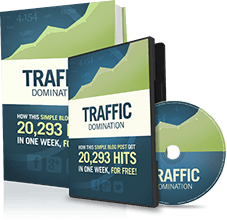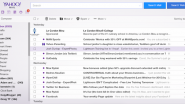8 Steps to Developing Blog Post Ideas
The steps toward unique content are important ones, as original ideas define great blogs.
However, what do you do with unique ideas when they’re thought up? And once you’ve generated your thousands of ideas, how do you develop them into pillar, link bait articles?
Execution is an important part of growing a popular blog, and if you don’t develop your posts properly, it’s difficult to fully engage and compel your audience.
Here are 8 steps to developing post ideas
#1 Define Your Sub-Topics: Every topic in a post has a “sub-topic.” For example, a post about planting petunias would talk about the right kind of soil for the flower. Make sure to narrow your post topic so that you don’t end up going on and on about multiple categories. If you have a particularly broad idea, why not make it into a series?
On the other hand, sub-topics can be hard to define if your topic happens to be too narrow. Make sure you pick a topic that is expandable, but not vast. Then decide upon the categories that you would like to cover, and figure out how they will solve your reader’s problem.
#2 Organize Your Sub-Topics: Once you’ve narrowed your topics, arrange them so that they flow neatly into one another. You wouldn’t want to organize your article about flowers to talk about how to water the soil before discussing the type of dirt. Make sure your progressions are logical, so that your readers can understand your step-by-step process.
#3 Do Research on Your Topics: Once you’ve figured out how to organize your post ideas, do some research on them so you are well versed in the area. Make sure you know all your definitions for key terms. Remember, you have to know something inside and out to teach it properly.
#4 Get Creative: Once you have all of your ideas in order and fully understand the topic, it’s time to get creative. Think of interesting metaphors, appropriate quotes, funny examples, and anything else to keep the reader’s attention. Don’t forget about post images. Pictures are worth a thousand words, and the correct image can illustrate your ideas perfectly for your reader.
#5 Compile Your Examples, Personal or Factual: Compile and combine personal and factual case studies so that you can further clarify your point. Remember that analogies, anecdotes, statistics, and other such helpful information can really bring a post into new depths. Using relative ideas and illustrations to relate to your readers is a fantastic way to up the quality of your content.
#6 Outline Your Post: After you’ve compiled and cited (always give credit when it’s due!) your examples and links, roughly outline your post so that you don’t get off track when actually writing it. Make sure that it falls inline with the same quality and composition of your other posts. Consistently builds quality just as much as unique and interesting topics!
#7 ProofRead!: After writing your post, go back and proofread! It’s important to spell your words right and organize your words into nice grammar so that your readers can understand it. Developing your posts means focusing on syntax and structure as well.
#8 Promote: Development also means working on your post after it’s been published. Marketing specific posts can provide potential readers with specific solutions that build your credibility. As well, it can bring in more loyal readers to your blog. Developing targeted marketing campaigns is an integral part of developing your posts.
Having an idea is important, but building upon it is golden. Without proper development of concepts, your readers will be left with stale posts and dull information. Many bloggers can think up various fantastic ideas, but few bloggers can build up momentum by properly delivering on their ideas.
Now do you have something else to say?
Comments
"Do Not Write Another Blog Post Until You Watch This Free Video..."

Watch this free video to learn...
- How I got over 10,000,000 people to visit my websites.
- The types of blog post that got me all that traffic.
- How to get someone else to do it for you!











Great post, Yan! Some good pointers.
I think you’re hitting home on a key area with your first few points. Don’t do too much with single posts or it limits what you can do. Target small areas and give each post a focus so that they don’t eliminate possible later posts and also help get you better SEO targetting.
Very reasonable tips
When I blogged, I saved post ideas on my phone whenever I was in class. Ideas just came to me whenever! lol
-Mike
I had a big problem of being too broad when I started out blogging. I had to learn the hard way that it’s very, very, very important to narrow down your subtopics.
Post from Yan is always great and inspiring… hm… thanks for this post! Lately, i got no idea in my mind…. hahahahaha……
Great post from yan! Thanks for sharing with us about it.
Good advice for a blogger who is starting out. It is very important to structure a blog post in a way that will carry out the idea that the blogger is trying to convey. With the explosion in the amount of information, the days of rambling content (unless you are very famous or authoritative).
Also, I think proofreading is very important. Every time a proofreads, apart from rectifying spelling and grammatical errors, I tend to take away redundant phrases and sentences as well.
Yan thats some good tips. 3 and 4 is very important for quality writing. point 7 ensures the quality and point 8 ensures you get rewareded for your work.
Hi there,
I came across your site on twitter and ‘ve been browsing it for a while and found some very good information. Thank you for sharing your views with us. I started my own online website last week and It feels great to see that there are many young like minded individuals out there and a good place to hang out, Here.
Cheers,
Eddie Gear
Thanks for these tips! As someone who just recently arrived in the blogosphere with his own blog this is very helpful. I think it’s imperative that when ideas pop up to just start writing them down, no matter how unorganized. Once you have decluttered your mind, take a break and then start structuring.
Another important point is that your post should be just a few paragraphs. I think that most people tend to tune out if its more than 4 or 5. Keep in mind that you also want content delivered by your commenters…
I’ll never think about my Sub-Topics or not even concentrate to organize sub-topics , but sure i wanted to consider and enhance sub-topics and other point as well you pointed here.
Great post and useful information, bloggers starting out should really listen closely to this advice. It all comes down to interacting with your audience and keeping people wanting to come back.
The outline is a key. My partner and I have been creating some content for my business lately. We seem to keep backtracking and rewriting because we didn’t have a good outline.
Some times dissecting sub ideas from posts is a good idea – some times those sub ideas do not have enough legs to stand on there own so i will add them into the post because they add to the users experience. Read read and read. I would also get involved in lots of discussion and brainstorming groups to think of new ideas.
I like to be liberal with my Tweeting. Studying past Tweets, many article ideas often just pop out at me based on trends on what I’ve talked about in the past weeks.
So I’d recommend everyone get Tweeting and don’t filter yourself too much!
This is a question that has been thrown at me several times now. But you just nailed it. Thanks as I can now use your post as a better reference. Mon
This is a great method especially when I start to run out of ideas to write about. I find that when I randomly browse through search engines for anything, I will start to have ideas to write about. Flipping through a magazine helps a lot too. Following these 8 steps above will definitely help in posting wonderful articles. You be surprise how many people skip proofreading.
Some great ideas. Its always hard to think of new things to write about, thankyou for the inspiration.
I recently came accross your blog and have been reading along. I thought I would leave my first comment. I dont know what to say except that I have enjoyed reading. Nice blog. I will keep visiting this blog very often.
Ruth
http://pianonotes.info